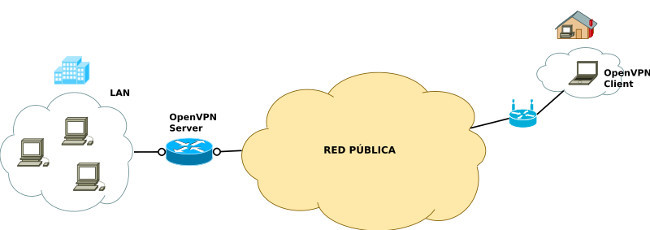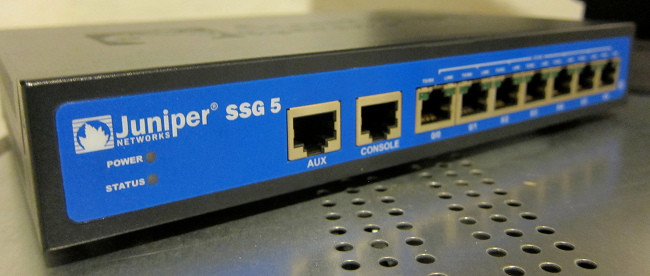
When establishing remote connections with servers or between sites, one of the characteristics to take into account is their security. For this, VPN (Virtual Private Network) is usually used, so we are going to see how to choose the safest VPN , making the data travel encrypted between both machines..
When connecting two machines that are not on the same local network, in addition to having communication at the IP level, that it is possible to ping each other, it is essential that the security of the data travels encrypted. To do this, VPN establishes a protocol through which it performs all the checks before starting the transmission. First it checks that there is communication, then it lifts the encryption tunnel between both locations and then opens it to allow the exchange of data.
These are the steps that mean that even if the data is intercepted between the two machines, it could not be used when traveling encrypted. Communication through a VPN can be done at the hardware level, placing a device capable of working with this type of network between the locations that have to communicate. This is the most common when connecting company headquarters for example.
At a private level or if we do not want to invest in this dedicated hardware, you can hire VPN services , which is the most common at home or even for professionals and freelancers who want to add extra security to their connections. In these cases, in addition to registering for the service, you need to install an application that is responsible for managing the connection and knowing what characteristics of the service we must take into account..
How to choose the most secure VPN
But if we are looking for extra security we put ourselves in the hands of our VPN service provider. That is why it is important to read the fine print well and take into account its characteristics such as the following:
- Log storage , since many VPN servers store connection data, such as the source IP and the hours at which we have connected. If we want absolute anonymity, it is better to make sure that this data is not saved.
- Protocols used by the VPN , as not all are equally secure. Among others the most common are PPTP, L2TP / IPSec, OpenPVN, SSTP, where PPTP is perhaps the least secure with some vulnerabilities discovered.
- Algorithms and encryption keys , such as AES or Blowfish, where it is recommended that 256-bit encryption keys be used
. - Speed of the service , although it does not have to do specifically with security, it is very important to take it into account if we do not want to see our limited connection speed. Free VPN services are the ones that offer us the worst speed and in some cases they even force us to share our bandwidth with other associated services.
- Location of the servers where it depends on what we are going to use the VPN connection for, we will be interested in whether it is in our country or in a different one. In any case, if it is for professional use, it better be within the EU to comply with its legislation on data protection.
- Possibility of using Tor through VPN if we want to add an additional security plus using the anonymous browsing service.
What are we going to use the VPN for?

But we also have to take into account what we are going to use the VPN for. They are typically used to:
- Teleworking when we want to connect remotely to the office equipment or we are in our place of vacation or connect safely through a public WiFi network.
- Extra layer of security for connections thanks to encryption, where even if the data is intercepted, they will not be able to access its content. This is a very great peace of mind if we carry out financial transactions, enter personal or customer private data, etc.
- Avoid censorship and blocks, something especially useful if we travel to countries that limit Internet access or want to connect to services that establish IP blocks for a specific country. This would be the case of subscription services that have not yet reached our country, and for them to work they require the IP of the United States, for example. Simply connect to a VPN server in our country to bypass this restriction.
The truth is that there is also the possibility of setting up our own VPN server , something that can be interesting especially for business networks. An example is OpenVPN an open alternative, but perhaps only intended for more advanced users.
In Lenovo Blog | Browse safer than anyone. These VPN services await you on your trip abroad
Images | Wikimedia | Chris Dash